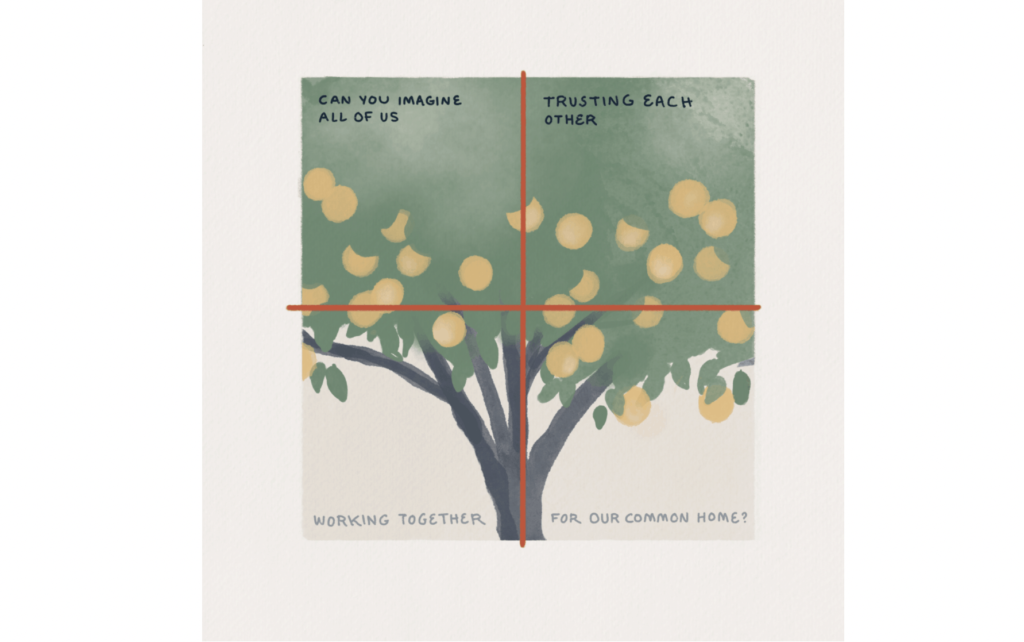Getting to the Roots of Intersectional Environmentalism

Intersectional environmentalism is a nuanced idea that sits at the cornerstone of environment, sustainability, social justice, and a multitude of identities. Originally coined by activist Leah Thomas, this framework advocates for the protection of all people and the planet and recognizes that injustices affecting marginalized communities and our environment are deeply interconnected.
While the concept of intersectional environmentalism was born out of the work of Professor Kimberlé Crenshaw in the 1990’s, the term “intersectionality” has been in use by Black women since the 1960’s. Crenshaw, a law professor at Columbia and UCLA, explains that “intersectionality is just a metaphor for understanding the ways that multiple forms of inequity or disadvantage sometimes compound themselves, and they create obstacles that often are not understood within conventional ways of thinking about antiracism, feminism, or whatever social justice advocacy structures we have” (Crenshaw).
In her paper titled “De-marginalizing the Intersection of Race and Sex,” Crenshaw describes how the oppression experienced by Black women is one in which the impacts are “greater than the sum of racism and sexism alone.” This publishing was reactionary to the exclusion of Black women throughout the feminist and civil rights movements of the 1960’s and 70’s; thus, their experience was distinctly unjust due to these overlapping oppressions.
Fast forward to the twenty-first century, Leah Thomas articulates her experiences in 2014 in the wake of the murder of Michael Brown, an unarmed Black teenager in her hometown of St. Louis, Missouri. Thomas explained how she began to explore her own identity as a Black woman in new ways as she attempted to process “the information and trauma while protests erupted nearby and fires burned structures to the ground” (Thomas).
Even after Thomas left St, Louis later that summer to return to college, she was unable to disconnect from the events in her hometown, and began to wonder how communities like hers could benefit from finding healing in nature.
“Throughout my studies, I became startled by the facts that it was indeed harder for black, brown, and low-income communities to have access to clean air, water, and natural spaces. Even worse, minority and low-income communities were statistically more likely to live in neighborhoods exposed to toxic waste, landfills, highways, and other environmental hazards. As my textbooks encouraged me to protect public lands so they could be preserved and enjoyed, I couldn’t help but wonder, “for whom?”
Leah Thomas, founder of Intersectional Environmentalist
Thomas explains how she wanted to preserve and heal the natural environment, but also wanted to protect vulnerable communities like the one in which she grew up. She was not able to separate her identity from her environmentalism, and this is when she discovered environmental justice.
Environmental Justice is the intersection between social justice and environmentalism, and takes into account the inequity of environmental degradation. Included in these considerations are inequalities relating to access to and use of resources, as well as the development, implementation, and enforcement of environmental laws, regulations, and policies.
In response to the outrage from the Flint water crisis, the Environmental Protection Agency shifted environmental justice and advocating for overburdened communities to the forefront of their agenda in 2020.
On a similar note, many other communities, organizations, and universities are now putting intersectionality and environmental justice at the forefront of their work.
“I think the argument that we are trying to make with intersectional environmentalism and the people that are passionate about environmental justice is, through intersectionality all things are connected. So that means climate justice is social justice is environmentalism. And those things are one of the same. People are a part of this great big ecosystem.”
Leah Thomas, founder of Intersectional Environmentalist
For far too long, mainstream environmentalism has excluded many groups from activism and decision making. People who are disproportionately targets of societal and systematic oppressions and compounding climate change effects are subject to uniquely intense harm. Intentional environmental work today must be applicable and beneficial to all people and their lived experiences, as well as to the planet.
In this budding series building on the ideas of intersectionality, the Office of Sustainability is excited to share and make space for a diversity of lived experience, as well as amplify unheard voices and center intersectionality in all the work that we do. The Office of Sustainability at Wake Forest is committed to using an intersectional lens and seeks to employ a holistic approach to systemic sustainability issues.
